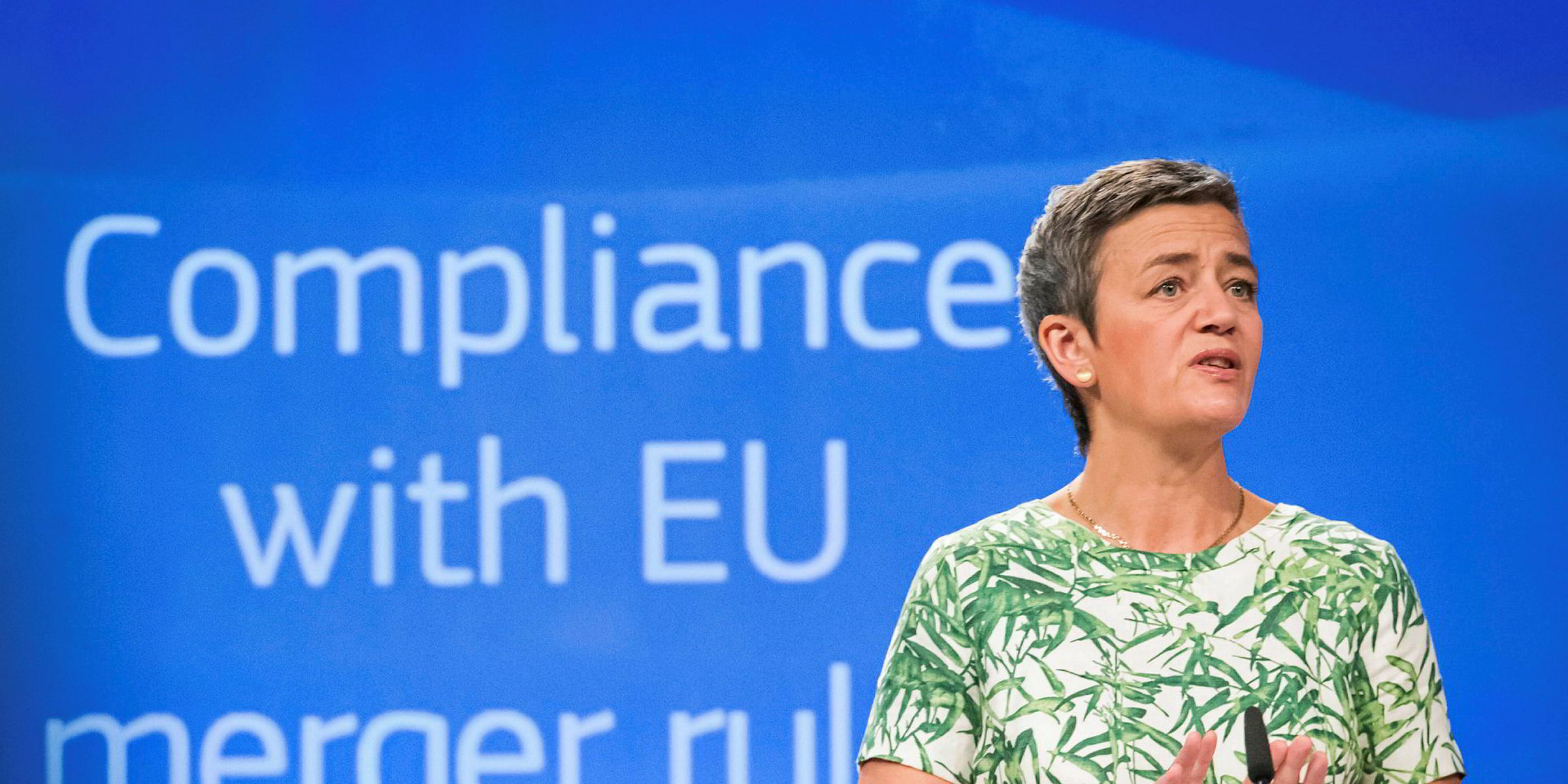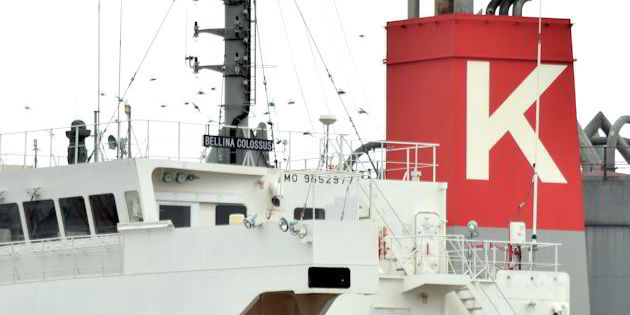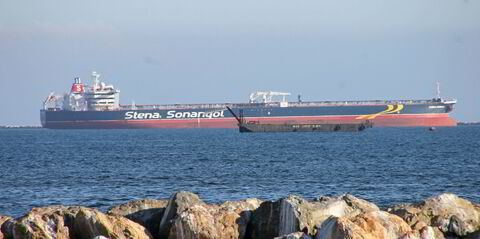European Union (EU) competition regulators announced on Wednesday a EUR 395m ($487m) fine against four car carrier companies for violating the bloc’s competition rules.
The fine applies to Chile’s CSAV, Japan’s K Line and NYK, as well as Scandinavian WWL-EUKOR.
These companies “participated in a cartel concerning intercontinental maritime transport of vehicles," the EU's executive Commission said in a press release.
MOL is said to also have taken part in the cartel but the Japanese carrier got away without a fine because it cooperated with the investigation, revealing the existence of the cartel, the Commission said.
European consumers hurt
The Commission separately imposed a fine of EUR 151m on several car part suppliers.
“By raising component prices or transport costs for cars, the cartels ultimately hurt European consumers and adversely impacted the competitiveness of the European automotive sector, which employs around 12 million people in the EU," EU competition commissioner Margrethe Vestager said in the release.
Concerning the car carrier companies, the commission said they “agreed to maintain the status quo in the market and to respect each other's traditional business on certain routes or with certain customers, by quoting artificially high prices or not quoting at all in tenders issued by vehicle manufacturers”.
WWL-EUKOR is to pay the bulk of the fine, with EUR 207.3m in total. NYK was fined EUR 141.8m; K Line is liable for EUR 39.1m and CSAV for EUR 7m. MOL would have paid EUR 203m but received “full immunity” on its fine, the Commission said.
K Line had its fine reduced 50%, while NYK and Eukor received a 20% reduction and CSAV 25%.
This reflected the timing of their cooperation and the extent to which the evidence they provided helped the Commission prove the existence of the cartel.
Meetings in bars
Vestager said that between them, the owners transported almost half of the 10m vehicles shipped in Europe in 2016.
"For almost six years, between October 2006 and September 2012, sales managers from these companies met at each other's offices, in bars, restaurants and other social gatherings," she added.
"They were also in contact over the phone on a regular basis. In those discussions, the five companies coordinated prices, divided up customers between them and exchanged commercially sensitive information that could help them align their prices.
"Instead of competing, they gave each other a free hand on certain routes or with certain customers, by deliberately quoting high prices or not quoting at all in tenders by carmakers."
WWL "deeply regrets outcome"
WWL confirmed it had reached a settlement.
It said that the European Commission (EC) had been engaged in an investigation into alleged anti-competitive behaviour involving the car carrier industry since 2012.
"The investigation revealed certain instances of conduct contrary to company policies and in breach of EU competition laws," the company said.
CEO Craig Jasienski added: "Whilst I deeply regret the outcome, we are pleased that the EC investigation has concluded. WWL group are committed to honest and fair business practices; this is an unfortunate part of our past and we must ensure it cannot occur again."
The company has made a provision for the fine and it will not have an effect on its subsequent results.
The latest round of fines
Car carriers have been the subject of antitrust action worldwide in recent years.
K Line was facing a fine from South Africa’s competition watchdog for rigging bids with rivals for shipping cars.
The local competition commission recommended a penalty equal to 10% of its local turnover.
South African authorities found the Japanese owner was working with MOL, NYK and Wallenius Wilhelmsen Logistics (WWL) on fixing prices for the shipment of Toyota vehicles.
In Australia, the competition watchdog lodged criminal charges against K-Line over allegations that it was involved in a vehicle shipping cartel.
NYK agreed to pay an AUD 10m ($7.6m) fine for price fixing there.
WWL and Eukor reached a settlement with the Brazilian Administrative Council for Economic Defence (CADE) over fines of $3.9m and $4.9m respectively.
CADE was investigating WWL and EUKOR over alleged cartel activities in the car carrier market.
Chile's National Economic Prosecutor’s office (FNE) filed charges in the country’s Free Trade Defence Tribunal (TDLC) against CSAV, Compania Chilena de Navegacion Interoceanica (CCNI), Eukor Car Carriers, K Line, Mitsui OSK Lines (MOL) and NYK Line.
Eukor denied being a part of any collusion in this case.
NYK and K Line were also fined in the US for violating shipping laws.





